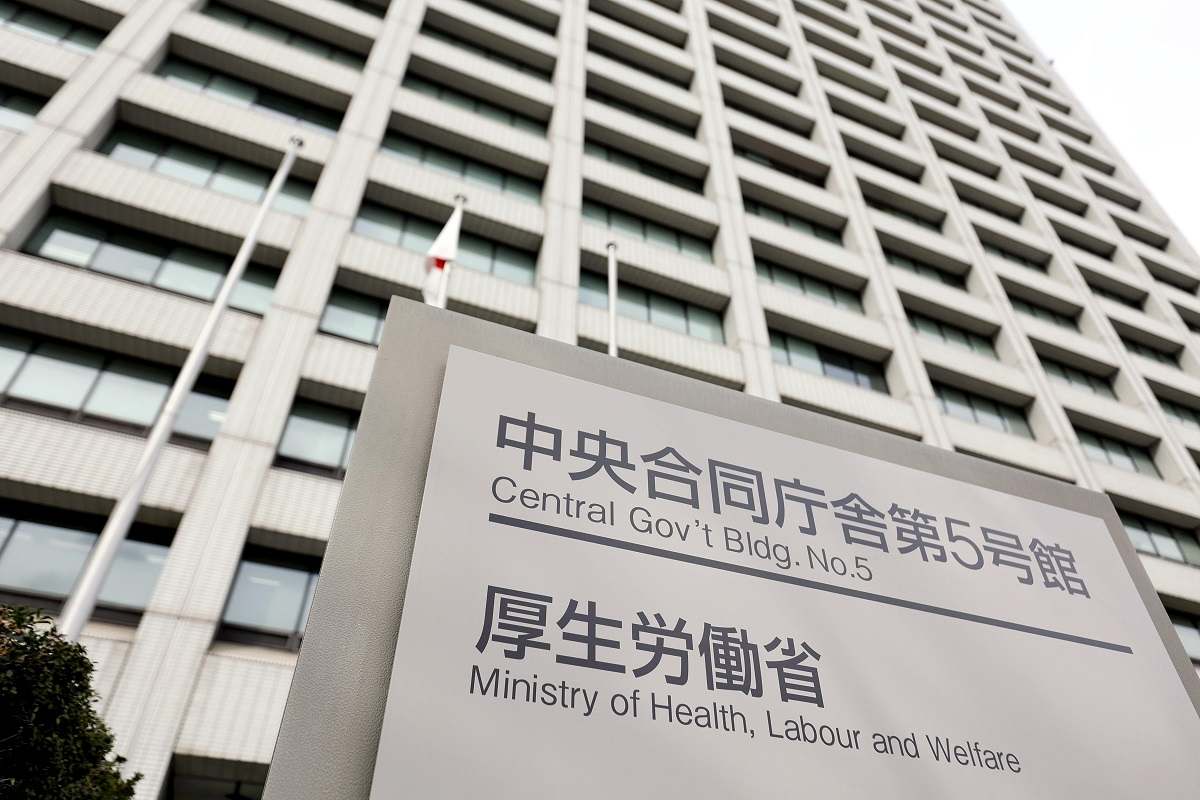Health Ministry Plans to Let Patients to Register at Multiple Transplant Facilities; Heart Transplant Criteria to Change

The Health, Labor and Welfare Ministry in Tokyo
17:01 JST, December 2, 2024
Patients waiting to receive organs from brain-dead donors will be allowed to register multiple transplant facilities where they can undergo transplant surgery, according to the Health, Labor and Welfare Ministry’s final draft plan on reforming the medical system for transplants.
The ministry plans to establish the new system incorporating the change within this fiscal year. The step will be taken in response to transplant facilities having to turn down organs from brain-dead patients due to a lack of necessary personnel or beds.
The ministry also plans to separate some of the procedures undertaken by the Japan Organ Transplant Network (JOT), which include corresponding with patients’ families and managing the surgeries to remove organs from donors, and entrust these tasks to new entities.
It will be the first drastic revision to the system that facilitates organ donation from brain-dead patients since the Organ Transplant Law came into effect in 1997.
The final plan is expected to be presented to the organ transplant committee, a panel of experts and others under the ministry, on Thursday. The committee has been discussing the issue since July.
Currently, patients waiting to receive organs can, in principle, only register one medical institution with the JOT. In the event a patient’s registered facility declines an organ, it will instead be taken to a different medical institution where a lower-priority patient will receive it.
In an effort to improve the situation, the ministry will allow patients to register multiple medical institutions. Under the proposed system, even if the first facility turns down transplant, the patient will be able to receive transplant at another they are registered at.
To support patients as they choose transplant facilities, the ministry plans to release such data as the number of patients on a facilities’ waiting list and the number of transplants it has performed. However, the propriety of disclosing the survival rates of patients who have received organ transplants will be examined by relevant academic societies, because it could prompt institutions to focus on their success rates and avoid performing difficult surgeries.
Regarding mediation procedures, the ministry plans to separate from JOT the tasks of giving explanations to brain-dead patients’ families about organ donations, obtaining their consent and managing the organ-harvesting process. These tasks will be delegated to corporations that will be newly established in each region. A nearby corporation will handle the tasks including responding to families of organ donations.
Through these revisions, the ministry hopes to reduce the rising burden on JOT, which is having to deal with an increasing number of organ donations, and expedite organ transplant procedures. The JOT will continue to take in charge of registration from patients wishing to receive organ transplants and choose the patients who receive organs.
In an effort to reduce the number of patients who die while waiting to receive organs, the ministry plans to amend the criteria for prioritizing patients receiving heart transplants. Under the amendment, patients whose lives are in imminent danger and whose conditions are highly urgent will be prioritized.
The ministry also plans to expand the number of facilities that can support institutions with little experience with organ donation.
Top Articles in Society
-

Producer Behind Pop Group XG Arrested for Cocaine Possession
-

Man Infected with Measles Reportedly Dined at Restaurant in Tokyo Station
-

Man Infected with Measles May Have Come in Contact with Many People in Tokyo, Went to Store, Restaurant Around When Symptoms Emerged
-

Woman with Measles Visited Hospital in Tokyo Multiple Times Before Being Diagnosed with Disease
-

Australian Woman Dies After Mishap on Ski Lift in Nagano Prefecture
JN ACCESS RANKING
-

Producer Behind Pop Group XG Arrested for Cocaine Possession
-

Japan PM Takaichi’s Cabinet Resigns en Masse
-

Man Infected with Measles Reportedly Dined at Restaurant in Tokyo Station
-

Israeli Ambassador to Japan Speaks about Japan’s Role in the Reconstruction of Gaza
-

Videos Plagiarized, Reposted with False Subtitles Claiming ‘Ryukyu Belongs to China’; Anti-China False Information Also Posted in Japan

























